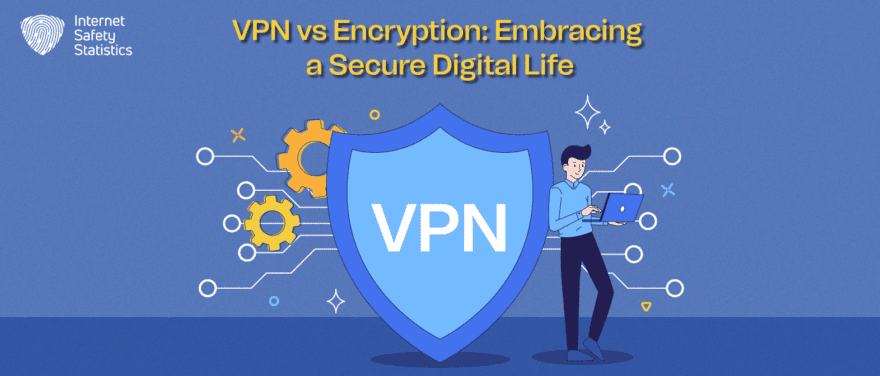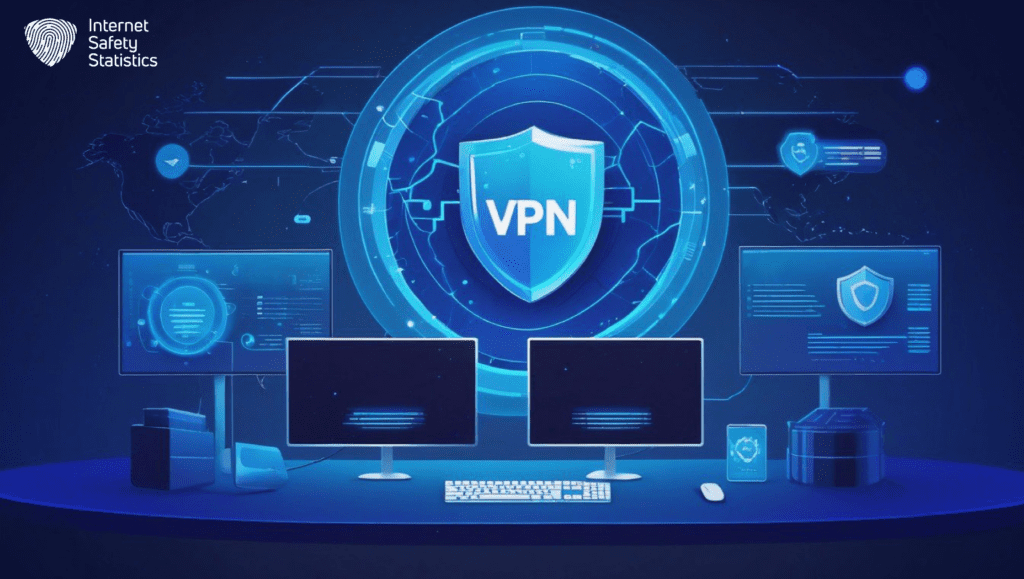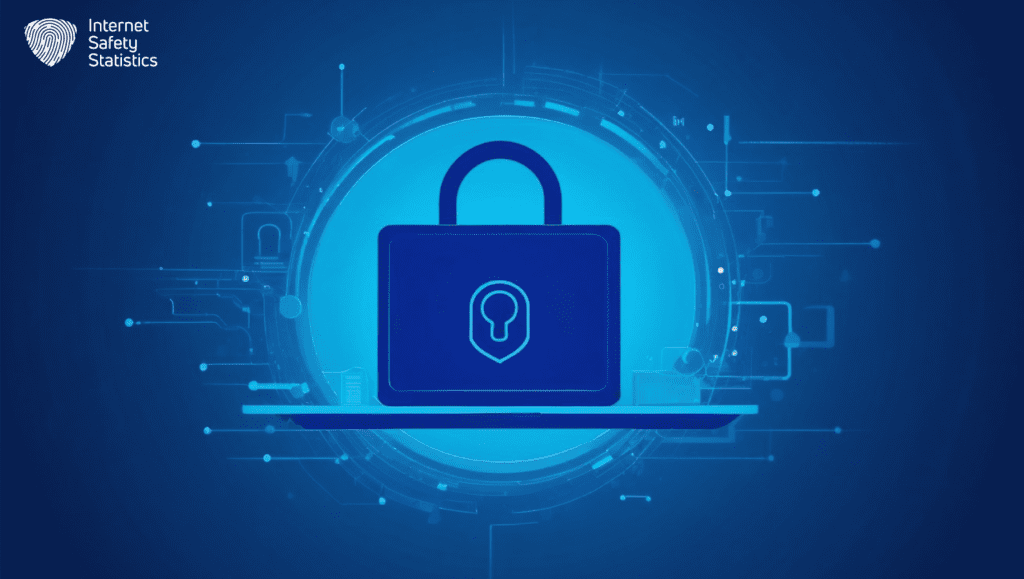
VPNs (Virtual Private Networks) and encryption have emerged as indispensable tools for safeguarding data and maintaining robust online security. These two security measures provide a formidable defence against the ever-growing threat of cyber-attacks, ensuring the confidentiality and integrity of sensitive information.
However, this pervasive reliance on technology has also opened up new avenues for cybercriminals, who are constantly seeking new ways to infiltrate systems, steal sensitive data, and disrupt operations. As the sophistication of cyber-attacks continues to rise, the need for robust security measures has become paramount. So, which is better? Find the answer to the battle of VPN vs Encryption in this article.
The Growing Threat of Cyber Attacks
The frequency and severity of cyber-attacks have surged in recent years, with malicious actors employing sophisticated techniques to infiltrate systems, steal sensitive data, and disrupt operations. These attacks can have devastating consequences, ranging from financial losses and reputational damage to compromising national security and disrupting critical infrastructure.
Cybercriminals target individuals, organisations, and governments, leveraging various methods to gain access to sensitive information. These methods include phishing attacks, malware, social engineering, and exploiting vulnerabilities in software and hardware. Once they gain access, cybercriminals can steal data, install backdoors for further access, or disrupt operations.
VPNs: A Gateway to Secure Online Connections
A VPN, or virtual private network, establishes a secure tunnel over the public internet, enabling encrypted communication between devices or networks. This encrypted connection masks the user’s real IP address and routes traffic through secure servers, providing anonymity and enhanced security.
Hiding Real IP Addresses
When connecting to the internet without a VPN, your device’s real IP address is exposed, revealing your location and potentially making you vulnerable to surveillance or tracking. VPNs effectively mask this real IP address by assigning a temporary IP address from a VPN server. This masking protects your online identity, making it difficult for third parties to track your internet activity.
Routing Traffic through Secure Servers
VPNs not only mask IP addresses but also encrypt data, transforming it into an unreadable format known as ciphertext. This encryption prevents unauthorised individuals from intercepting and viewing your online activity, including browsing history, personal data, and confidential communications. The encrypted data is then routed through secure VPN servers, further enhancing the protection against eavesdropping or data interception.
Benefits of Utilising VPNs

VPNs offer a range of benefits for individuals, organisations, and businesses, including:
- Enhanced Online Privacy: VPNs shield your online activity from prying eyes, protecting your privacy and anonymity while browsing the internet.
- Enhanced Security: Encryption and secure server routing significantly reduce the risk of data breaches, identity theft, and other cyber threats.
- Access to Restricted Content: VPNs can circumvent geo-restrictions imposed by websites or streaming services, allowing you to access content that may not be available in your region.
- Efficient File Sharing: VPNs can secure file transfers between devices, ensuring that sensitive data remains confidential during transmission.
Exploring Encryption: Unveiling the World of Cryptographic Protection
Encryption, a cornerstone of modern security, transforms plain text data into an unreadable form known as ciphertext, safeguarding sensitive information from unauthorised access or modification. It serves as a critical tool for protecting data at rest, in transit, and during communication.
Defining Encryption
Encryption employs mathematical algorithms to scramble plain text data into unreadable ciphertext. Only authorised parties with the necessary decryption key can reverse the process and retrieve the original plaintext. This transformation ensures that sensitive information remains confidential, even if intercepted or accessed by unauthorised individuals.
Varieties of Encryption Algorithms
Various encryption algorithms exist, each with its strengths and weaknesses. Common algorithms include:
- Symmetric-key encryption: Uses a single key for encryption and decryption, offering efficiency but posing challenges in key distribution.
- Asymmetric-key encryption: Employs a pair of keys, public and private, for encryption and decryption, providing secure key exchange but requiring more computational resources.
- Public-key cryptography: Combines asymmetric-key encryption with digital signatures for authentication and non-repudiation.
Key Management
Key management is the cornerstone of secure encryption practices. Proper key management ensures the confidentiality and integrity of encryption keys, preventing unauthorised access or misuse. Key management involves:
- Key Generation: Generating strong and secure keys using appropriate algorithms and secure hardware.
- Key Distribution: Distributing keys securely to authorised parties, often using trusted intermediaries.
- Key Storage: Storing keys securely, often on hardware security modules (HSMs) or other tamper-resistant devices.
- Key Rotation: Regularly rotating keys to mitigate the risk of exposure or compromise.
- Key Revocation: Revoking compromised or expired keys promptly to prevent further unauthorised access.
VPN vs Encryption: Comparing Capabilities and Limitations
VPNs and encryption offer distinct functionalities, each addressing specific security concerns:
VPN’s Strengths
- Masking IP addresses and routing traffic through secure servers provide enhanced online privacy and anonymity.
- Enable secure access to public Wi-Fi networks.
- Allow for bypassing geo-restrictions to access blocked content.
VPN’s Limitations
- Encryption is not always enabled by default, so users need to manually activate it.
- VPNs may affect internet speed, depending on the service provider and network congestion.
- VPNs can be susceptible to configuration errors, such as using weak encryption protocols or misconfigured VPN servers.
Encryption’s Strengths
- Converts plain text data into unreadable ciphertext, safeguarding sensitive information from unauthorised access or modification.
- Protects data at rest, in transit, and during communication.
- Employs various algorithms, such as symmetric-key and asymmetric-key encryption, to suit different security requirements.
Encryption’s Limitations
- Effective encryption depends on strong encryption algorithms and robust key management practices.
- Key management is critical to prevent unauthorised access to encryption keys.
- Encryption can be computationally intensive, especially for resource-constrained devices.
VPNs and Encryption: A Synergistic Approach

VPNs and encryption work together to provide comprehensive security protection.
VPNs
- Create secure tunnels over the internet, shielding network traffic from eavesdropping and interception.
- Mask IP addresses, preventing third parties from tracking online activity or identifying users.
Encryption
- Protects data from unauthorised access or modification while traversing the VPN tunnel.
- Safeguards data at rest, such as sensitive files stored on devices or in cloud storage.
Determining the Optimal Approach
In the intricate digital landscape, where sensitive information is constantly being transmitted and stored, the need for a comprehensive security strategy has become paramount. This strategy should encompass a range of security measures tailored to specific needs to safeguard data from unauthorised access, modification, or disclosure.
Selecting the Appropriate Security Solution
The appropriate security solution depends on the nature of the sensitive information being protected, the level of security required, and the specific risks involved. Factors to consider include:
- Data Sensitivity: Different types of data have varying levels of sensitivity, requiring different security measures. For instance, highly confidential financial data or personal information requires stronger protection compared to less sensitive business documents.
- Security Requirements: The security requirements depend on the specific organisation or individual’s threat landscape, such as the frequency of online attacks or the presence of sensitive data stored in the cloud.
- Risk Profile: The risk profile considers various factors, including the likelihood of data breaches, the potential impact of a breach, and the organisation’s or individual’s ability to recover from such a breach.
Recommendations for Specific Use Cases
- Secure Communication and Remote Access: VPNs are essential for secure communication and accessing remote networks. They provide confidentiality, integrity, and authentication for online interactions.
- Data Storage: Encryption is crucial for safeguarding sensitive data at rest, such as files stored on devices or in cloud storage. Strong encryption algorithms and robust key management practices are essential.
- Data Transmission: Encryption is essential for protecting data in transit, particularly when transferring sensitive information over the internet. Secure protocols like HTTPS and TLS should be used for web browsing and email communication.
- Communication Security: Encryption techniques like PGP (Pretty Good Privacy) and S/MIME (Secure/Multipurpose Internet Mail Extensions) can be used to secure email communications.
Factors Influencing the Choice of Cybersecurity Solutions
Selecting the most suitable cybersecurity solutions is crucial to protecting sensitive information and maintaining a robust online presence. A tailored approach considers various factors, including the type of data being protected, the level of security required, the available budget, technical expertise, and compatibility with existing systems.
Data Protection and Security Needs
- Data Type: The type of data being protected determines the level of security measures needed. Highly sensitive information, such as financial records, personal data, and intellectual property, requires stronger security measures than less sensitive data.
- Data Sensitivity: The sensitivity of the data influences the choice of security solutions. Highly sensitive data, such as personally identifiable information (PII) or government secrets, necessitates robust encryption and access controls.
Budgetary Considerations
- Cost of Solutions: The cost of cybersecurity solutions varies depending on their features, complexity, and provider. Organisations with limited budgets may need to prioritise affordable solutions that align with their security needs.
- TCO (Total Cost of Ownership): Evaluating the total cost of ownership (TCO) is essential. This includes the initial purchase cost, ongoing maintenance fees, and the potential cost of data breaches or security incidents.
Technical Expertise and Compatibility
- Technical Skillset: Organisations should consider their technical expertise and the skills of their IT staff. Complex security solutions may require specialised knowledge and expertise for implementation and maintenance.
- Compatibility: Compatibility with existing IT infrastructure and systems is crucial. Integrating new security solutions with existing networks, applications, and devices may require compatibility testing and potential modifications.
Ease of Implementation and Flexibility
- Ease of Use: Security solutions should be easy to implement, manage, and use by users across the organisation. Complex and convoluted solutions may increase the risk of misconfiguration or non-compliance.
- Flexibility: Security solutions should be flexible enough to adapt to changing business needs, evolving threat landscapes, and new technologies. Scalability and adaptability are essential to maintain a robust security posture over time.
Conclusion
VPNs and encryption are both crucial security tools that play complementary roles in safeguarding sensitive information and maintaining online privacy. VPNs create secure tunnels over the internet, masking IP addresses and encrypting data to protect against eavesdropping and interception. Encryption, on the other hand, converts plain text data into unreadable ciphertext, safeguarding sensitive information from unauthorised access or modification.
